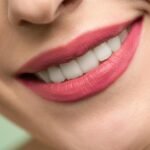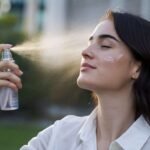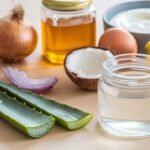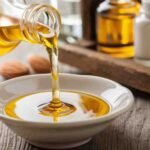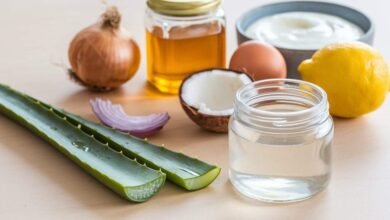10 Proven Tips on How to Get Thick Hair Naturally and Effectively
“Learn the secrets of how to get thick hair naturally with expert tips and effective remedies. Transform your hair today!”
Thick hair is also considered to be one of the most attractive hairstyles especially because the hair symbolizes youth and health. It complements the face well; it gives the hair body and direction; and can easily be maneuverured. To fully comprehend this need, which, when met, calls for elaborate efforts by people to gain thicker hair, it aids in appreciating the factors in play behind this quest.
Factors Affecting Hair Thickness
Genetic Influences
There is also the involvement of genetic factors in defining the thickness of charcoal hair. How many hair follicles a person possesses is primarily determined by genetics, that is, inherited from one’s parents. Another factor that is determined genetically is the size of each follicle and the length of time it takes for a hair to grow back after shedding, all of which also affect hair thickness.
Hormonal Factors
Certain hormones bear a close relation to hair growth, particularly the thickness of the hair, hair-producing cells, and or hair follicles. Local conditions such as puberty, pregnancy, menopause, and several health conditions may cause modification of the hair diameter.
Diet and Nutrition
As for hair, its health depends upon the proper nutrition.
Thus, it is possible to state that proper nutrition is essential for healthy hair. Poor diet also leads to hair loss due to the lack of nutrients such as iron, zinc, biotin, and vitamins A, C, and E.Dietary nutrients that formed a healthy meal to ensure hair health was enhanced included The table below indicates types of meals that the nutrients in the right proportion.
Environmental Factors
Chemical pollutants, ultraviolet radiation, and abrasive weather are among the factors that are known to affect the hair and scalp resulting in thin hair. Owing to these factors, hair should be protected with thickness through the following ways.
Lifestyle Choices
Smoking is also a key player contributing to hair loss because it narrows blood vessels and reduces the nutrient that flows to the hair follicles Failing to exercise and taking alcohol also impacts hair. Thus, changing one’s lifestyle and adopting the healthy one leads to hair thickening and becoming healthier.
Diet for Thicker Hair
Essential Nutrients for Hair Health
It is necessary to mention that proteins, vitamins, and minerals are essential for hair health. Since protein is the popular constituent of hair, it should be consumed in forms rich with lean meats, fish, beans, and nuts. Protein, vitamins A, C, and E, and all the B group vitamins, iron, and zinc are all important for healthy hair and tackling the problem of hair loss.
Foods to Include
Add foods such as eggs, spinach, sweet potatoes, avocados, nuts and seeds, and berries for the improvement of hair health. Such foods offer such nutrients and antioxidants that help avoid damage of hair follicles and the growth of hair .
Supplements for Hair Growth
Various foods are not enough to meet the body’s nutritional needs; hence supplements come in handy to make up for lost ground. Hair thickening empowerment can be obtained from biotin, collagen, fish oil, and multivitamins meant for sustaining hair productivity. One should consult with a healthcare provider before taking any supplement.
Hydration and Hair Health
Drinking water remains beneficial to the body and hair in particular since the hair is made of proteins and needs water to help in protein synthesis. This fluid helps transport nutrients to hair roots and enables the scalp to be healthy all the time. This is the approximate amount of water a person should be taking in a single day with the minimum being eight glasses.
Hair Care Routine

Choosing the Right Shampoo and Conditioner
Choose products that will be adapted for your hair type. An array of vitamins such as keratin, vitamin biotin, and natural oils also effectively strengthen hair and need to be sought frequently in shampoos and conditioners. Sulfates and parabens are some of the most terrible chemicals that ought to be avoided in beauty products.
Proper Washing Techniques
It can be damaging to wash the hair too often within the week because it fades the natural oils of the hair causing dryness and hair breakage. To shampoo your hair, use warm water and gently rub the hair and the scalp 2-3 times every week.
The Role of Hair Masks and Conditioners
Pronounced hydration and nourishment treatments include deep conditioning treatments and hair masks. It is recommended to use them once per week to keep the hair condition and concentrate on the mid-shafts to tips of the hair.
Regular Trimming and Its Benefits
Minimal hair trims every 6-8 weeks help avoid split ends and thus help in growing healthy and thick hair. Thus, as mentioned earlier, although trimming non-effectively helps to improve hair thickness, it is very important to improve its condition.
Natural Remedies
Essential Oils
The advantage of using natural oils is that they reach the root area of your hair thus helping to thickness the hair. Added it to a base oil (e. g. Usual massage oils like coconut oil or jojoba oil should be used, and then the rubbing should be done in circles on the scalp.
Aloe Vera
Aloe vera helps remove the flakes that cause dandruff and also helps the hair root find space to grow. Mass the aloe vera gel on the scalp for about 1 hour and then wash off.
Egg Masks
Technically, eggs are proteinaceous foods that contain many nutritional values, which can prove useful in enhancing human health. The mask for this procedure is to beat one or two eggs and one tablespoon of olive oil and apply tit o your scalp and hair use the shower cap to cover it leave the mask for 20-30 minutes and rinse with cool water.
Herbal Rinses
With the appearance of useful ingredients such as rosemary and nettle in rinsing, hair growth can be boosted. Incorporate the herbs into a strong tea and allow it to cool before use; rinse the hair after washing with shampoo.
Hair Growth Products
Topical Treatments
There are topical treatments like minoxidil that have been regulatory approved for hair regrowth by the Fda. They have a mechanism of action based on the activation of hair follicles and the prolongation of the anagen phase of hair growth.
Serums and Oils
Bioscience-filled hair serums and oils can help hair’s growth-promoting properties with peptides, vitamins, and other oils. Use them for the scalp and hair in the manner stated.
Shampoos and Conditioners
Consequently, there is ratification of biomolecules such as biotin, caffeine, and keratin incorporated in special shampoos and conditioners with the ability to fatten hair thickness. These products thicken hair cuticles and activate the skin at the root of the hair.
Oral Supplements
Certain oral supplements are available in the market that can be taken specifically for hair to result in thicker hair growth. Use products with biotin, zinc, iron, and any other required nutrients and minerals.
Hair Styling Tips
Using Heat Tools Wisely
Heat damages the hair. Heat tools are to be used when necessary and be sure to put on a heat protectant spray. Use less heat as much as possible and if possible avoid using the appliances that produce heat.
Choosing Hairstyles that Promote Thickness
I think some haircuts can make hair seem denser. One way of getting full hair is with layered cuts, big hair and the use of extensions can also add fullness. Prevent styles that keep the hair tied and cause tension to the strands as much as possible.
Avoiding Damage from Chemical Treatments
The condiment services such as coloring and perming have adverse effects on the health of hair. That should be done by professionals who can use the highest-quality materials, and the procedures should be followed by conditioning treatments.
Protective Hairstyles
Such Styles as braids, buns, and twists help protect hair as one is not likely to expose the hair to many harsh situations or constantly manipulate it.
Medical Treatments for Thicker Hair
Minoxidil and Other Topical Treatments
Minoxidil is reported to work by dilating the blood vessels in the scalp thus stimulating hair follicles. Other treatment involves the use of ketoconazole in ailments of the scalp and corticosteroids for the same as well.
Prescription Medications
Medications like finasteride that is used in the treatment of alopecia exhibit its action as an androgen antagonist which reduces the conversion of testosterone to DHT, a hormone that brings about the thinning of hair.
Hair Transplants
Hair implanting as the process is also called involves the transferring of hair follicle from one area to another that has sparse hair. This surgical procedure can give long-term remedies for hair loss.
Reducing Stress

Stress has been reviewed to avert the well-being of the hair: These activities such as yoga, meditation, and the incorporation of exercises can alleviate stress and cause human hair to become healthier.
Getting Enough Sleep
Sleeping is an important necessity in the body and its functions such as hair growth because body repair and regeneration occurs during this time. Make it a habit to lay down and sleep during the night to get 7-9 hours of quality sleep.
Exercise and Its Benefits
Physical activity increases the blood flow which brings nutrients in the form of blood and oxygen to various parts of the body inclusive of hair roots that need nutrients in order to grow and become healthy.
Avoiding Smoking and Alcohol
The effects of smoking and consuming alcohol can cause brittle hair so much that the hair can thin. Stops smoking helps in improving general well-being and also results in improved hair thickness but moderation in the intake of alcoholic products also plays a key role.
The Role of Scalp Health
Importance of a Healthy Scalp
Thus, the thickness and health of hair largely depend on the condition of the head skin. To ensure the condition of the scalp is good one should wash their hair regularly but avoid products with strong chemicals, one should also use products that do not interfere with the pH level of the scalp.
Scalp Massages
This enhances the supply of blood to the hair roots by massaging the scalp regularly. These can be coconut oil or jojoba oil and they should be used to boost the benefits that are to be gained from the act.
Exfoliating the Scalp
Exfoliating the scalp helps to eliminate the layers of dead skin cells and the amount of accumulated products. It is recommended to use a soft scrub or brush specifically for the skin of the head.
Treating Scalp Conditions
Some other external factors that can influence the status of hair include some illnesses such as dandruff, psoriasis, and seborrheic dermatitis. These conditions should be treated using the right medicated shampoo and other related treatments.
Conclusion
Thick hair is therefore something that can only be obtained by paying attention to your diet, the products you use in hair treatment, medical checkups, and a noble lifestyle. It is imperative to comprehend the factors that affect the promotion of hair growth including genetic factors, hormones, and the environment. The following are aspects of scalp care that can help to increase the thickness of hair: the use of products for the head and regular care. If these practices are followed religiously and incorporated into a comprehensive regime, one would essentially be able to enhance hair thickness and health in the long run. Also follow us on Medium and Pinterest.
FaQs About How To Get Thick Hair:
Can diet really impact hair thickness?
Hair supplements can work, and it is recommended that a person with a nutritional deficit to take them. Consuming supplements with biotin, collagen, and other vitamins and minerals germane to hair growth and thickness also comes recommended. But before any supplement is to be taken, it is advisable to seek the permission of a qualified doctor.
How often should I wash my hair to maintain thickness?
Hair washing should be done in average two to three times a week, depending on the hair type. This means that washing your hair too often will make it lose its natural oils, and may become brittle, while washing it very rarely will make it develop lots of residues and also cause your scalp problems.
Do hair supplements work for increasing hair thickness?
Yes, the diet is one of the critical factors that influence hair health and growth. Ensuring that one takes a balanced diet of proteins, vitamin, and mineral such as biotin, zinc, and iron there is likely to be improvement in the thickness and general hair growth.
- Top 10 Moisturizers for Every Skin Type
- Top 6 Benefits of Primose Oil For Skin.
- My Dental Healthy Journey
- Understanding Hair Porosity: Tests, Tips, and Care Routines
- Top 10 Amazing Benefits of Rose Water for Skin
- Aloe Vera Hair Masks for Healthy and Beautiful Hair
- Natural Ways to Remove Sun Tan Fast
- How to Get Thick Hair: Simple Habits for Thicker, Longer Hair
- Is Jojoba Oil Good for Low Porosity Hair?
- Top 7 Skin Benefits of Batana Oil
- DIY Face Masks for Glowing Skin: Natural Remedies
- Natural Remedies for Clear Skin: Glow Naturally
- Rosehip Oil for Acne Scars: Does It Really Work?
- Almond Oil for Hair: Tips for Thicker Locks
- Top 10 Natural Remedies to Stop Hair Fall


